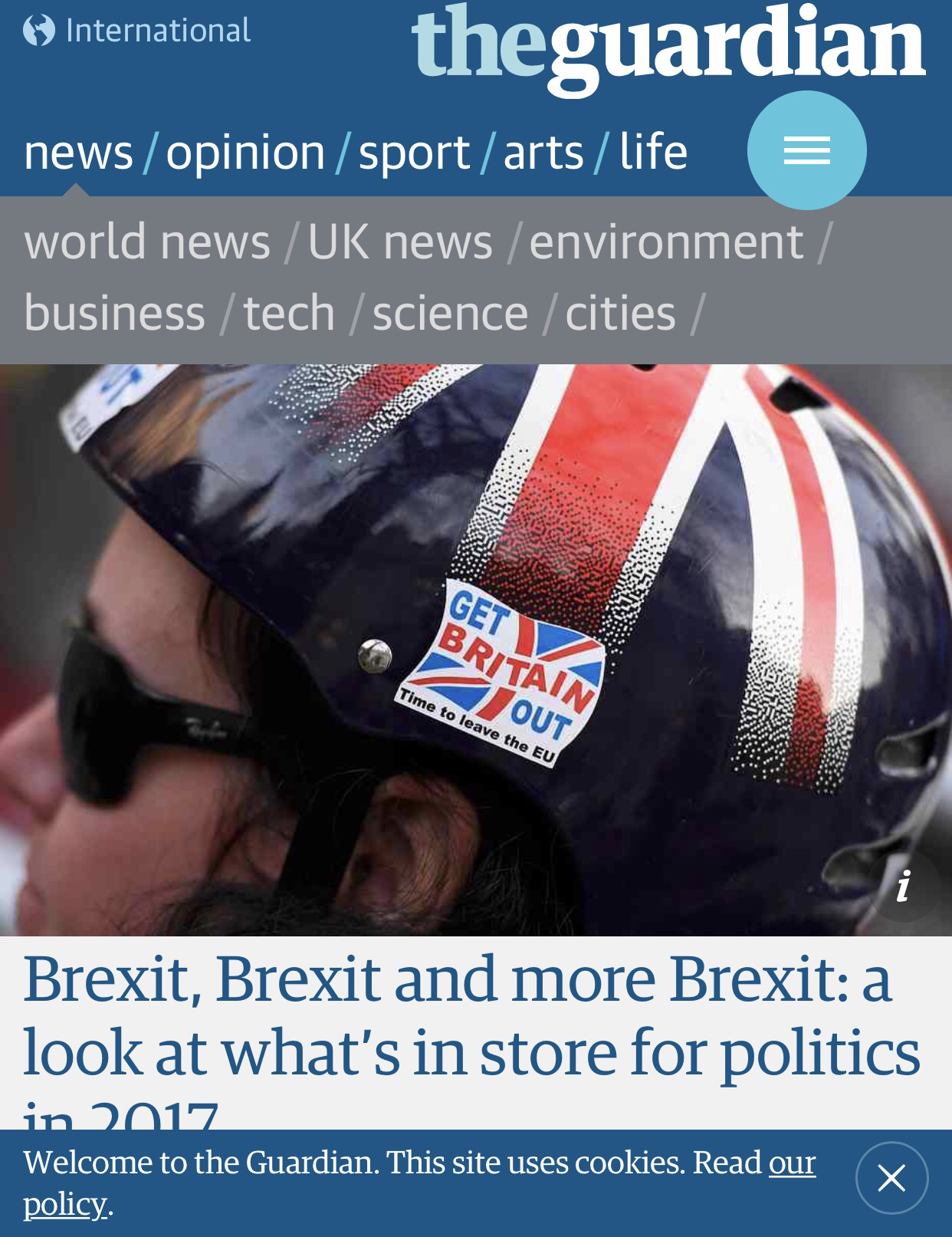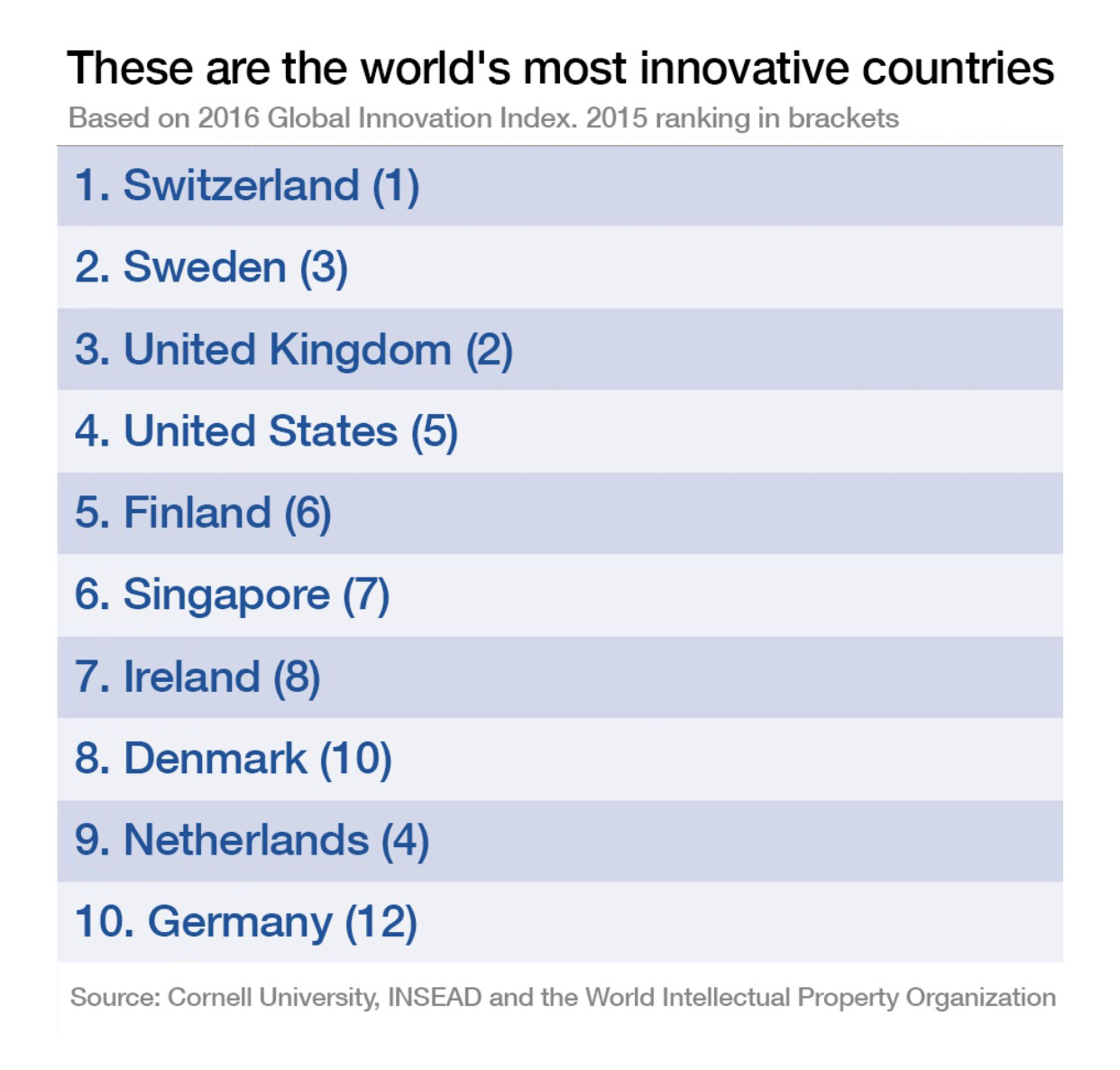What is the agenda for 2017 in EU and UK? Take a guess. The UK newspaper The Guardian knows; it will be BREXIT time.
Brexit was the defining political issue in the UK in 2016, unseating a prime minister and unsettling MPs, but the shockwaves unleashed by voters’ decision to leave the European Union will reverberate over the next 12 months and beyond.

The soaring rhetoric of the Brexiters on sovereignty, control and freedom was the constant refrain of political debate in 2016, but it had already begun to be replaced by more prosaic practicalities as the year drew to a close,.
Things are due to get real, and fast. Theresa May has promised to give a speech early in the new year setting out the government’s approach to its Brexit negotiations. These will follow automatically the triggering of article 50 of the Lisbon treaty, something she intends to do before the end of March. In January, the supreme court will rule on whether the prime minister can invoke article 50 without consulting parliament. If the 11 justices uphold the high court’s judgment, the government will have to push legislation through both houses of parliament in time to meet her self-imposed deadline for beginning the formal process of leaving the EU.
That is likely to create plenty of drama at Westminster. The next act, however, will take place far away from London, in Brussels and across the capitals of the EU member states, as leaders decide what kind of Brexit deal they are willing to offer against the backdrop of their own domestic battles.
Several forks in the road appear to be inevitable. The other 27 members of the single market seem determined to uphold the principle of the free movement of labour if Britain is to retain other benefits such as free movement of goods, capital and services.
Click here to read the article: The Guardian, Brexit article
Source: The Guardian
Switzerland has held onto its title as the world’s most innovative economy in the latest Global Innovation Index.
The 2016 index, produced by the World Intellectual Property Organization (WIPO), Cornell University and INSEAD, assesses the innovation performance of 128 global economies. This year is notable for China’s breakthrough into the top 25. It marks the first time a middle-income country has taken a place among highly-developed economies in the survey’s 9-year history.
Switzerland claims the top spot as the world’s most innovative economy – a position it has held for six years. The European nation scores highly on a range of indices, from government effectiveness to business sophistication, and creative goods and services.

Sweden climbs one place to take second, swapping places with the United Kingdom. It scored highly on infrastructure, human capital and research.
An all-European top 3 is completed by the United Kingdom. Like Sweden, it scored highly for infrastructure, as well as market sophistication and creative outputs.
For the first time since the index started, China takes a place in the top 25, rising from 29th last year.
The report attributes this to improved performance, as well as methodological changes in the index. However, the authors highlight the continuing “innovation divide” between the developed and developing world. The majority of innovative activity is concentrated in high-income economies and a few middle-income economies, including China, India and South Africa.
However, there is good news, with several African economies named “innovation achievers”. They include countries like Kenya, Madagascar and Rwanda, and were found to perform at least “10% higher than their peers for level of GDP”.
Innovation remains a key driver of economic growth, as highlighted by both the Global Innovation Index and the World Economic Forum’s Global Competitiveness Report.Innovation is one of the 12 pillars of competitiveness in the Forum’s report, and it looks set to play an ever more important role, says Margareta Drzeniek Hanouz, one of the economists behind the report.
“In the future, a country’s socio-economic progress will be increasingly determined by its ability to innovate and adapt quickly to new environments. Scientific and technological research and development, creativity, new business ideas and the ability to implement new business models will also increasingly determine a country’s success.”
Source: WEF







You must be logged in to post a comment.